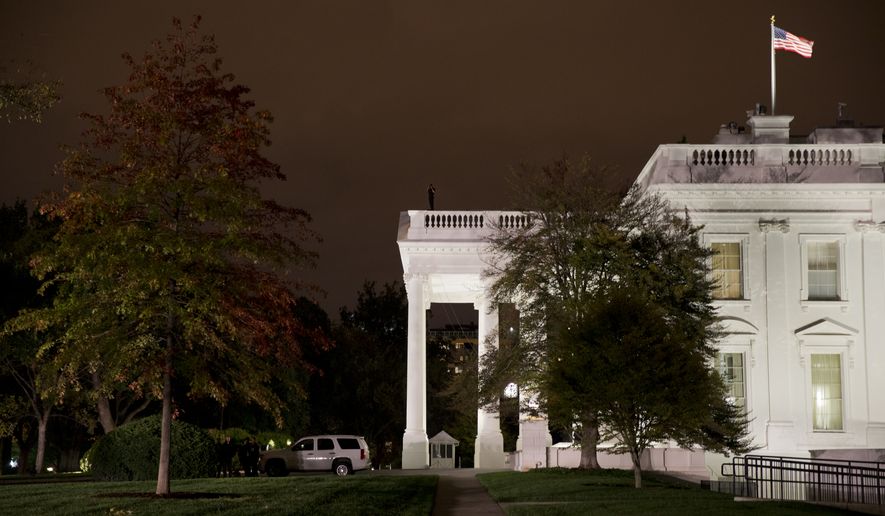A Secret Service canine officer had removed his earpiece and was talking on his personal cellphone when a jumper leaped over the White House fence and sprinted to the mansion in September, a review by the Department of Homeland Security has found.
The failure was among a series of shortcomings in training, communications and decision-making by the unit charged with protecting the president and the executive residence that allowed Omar Gonzalez to make it to the East Room of the White before being tackled during the Sept. 19 incident.
The report said the canine officer responded when he saw other officers running along the White House grounds but lost track of the intruder and “was surprised that Gonzalez was able to enter and pass through [the bushes].”
The internal investigation found that, among other problems, officers were relying too much on the canine unit and the “erroneous belief that the bushes were an impassable barrier.”
At the same time, a problem with the Secret Service radio system prevented leaders from overriding all normal communications and alerting officers that an intruder was on the White House grounds, the report found, meaning that agents were left without clear direction and were often talking over one another.
Rep. Michael McCaul, Texas Republican and chairman of the House Homeland Security Committee, said he wants an independent review to follow Homeland Security’s own investigation.
“Several high-profile incidents have caused Americans to question the leadership and management of the U.S. Secret Service,” Mr. McCaul said. “The men and women of the Secret Service deserve an organization that is efficient and effective, and the American people deserve confidence that the Service can effectively perform its vital missions.”
The top Democrat on the committee, Rep. Bennie Thompson of Mississippi, also expressed concern about continuing problems at the agency.
“While some of these problems can be attributed to a lack of resources, others are systemic and indicative of Secret Service culture,” he said. “Some of these problems have begun to be addressed, however it is imperative that DHS follows through on these findings and institutes real reforms.”
The leader of the Secret Service, Julia Pierson, resigned over the failures in security, and DHS Secretary Jeh Johnson appointed a review group to find out what allowed the main to gain unfettered access to what is supposed to be one of the most secure sites in the U.S.
• Phillip Swarts can be reached at pswarts@washingtontimes.com.




Please read our comment policy before commenting.